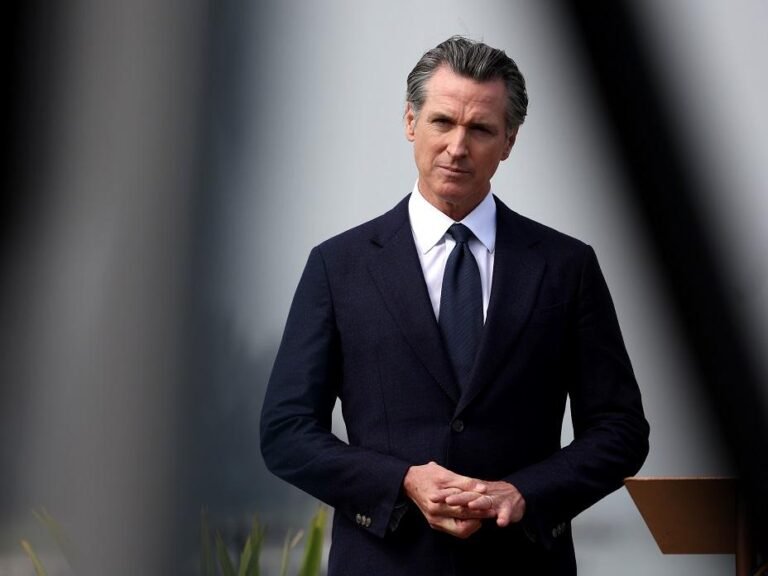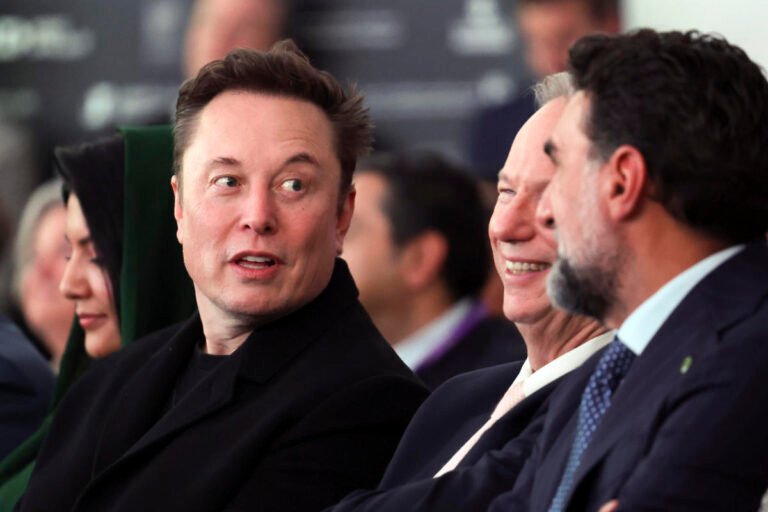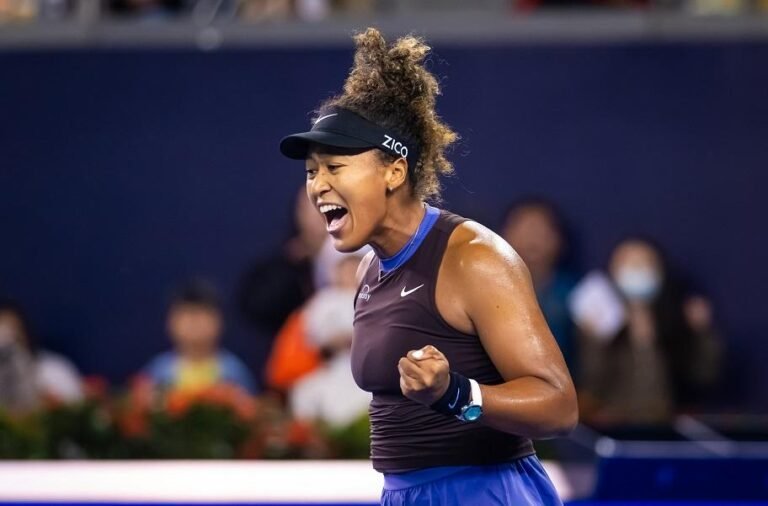Trump’s lawyers and his Justice Department have wielded the case in several major filings, including over the ban on TikTok and in new Supreme Court arguments to justify the president’s firing of an official who runs an independent agency.
The latter case, centered on Trump’s February 7 removal of the head of a watchdog agency, will mark the first Supreme Court test of Trump’s second-term agenda.
Justice Department lawyers opened their filing on Sunday with an ambitious reference to Trump v. US as they argued neither Congress nor federal judges may interfere with Trump’s power to get rid of appointees of a former president.
“This case involves an unprecedented assault on the separation of powers,” DOJ wrote as it appealed a lower court order that would let Hampton Dellinger remain at the helm of the independent agency that protects whistleblowers.
“As this Court observed just last Term, ‘Congress cannot act on, and courts cannot examine, the President’s actions on subjects within his conclusive and preclusive constitutional authority’ — including ‘the President’s unrestricted power of removal with respect to executive officers of the United States whom (the President) has appointed,’” the Justice Department added.
Trump’s arguments in cases parallel his Oval Office declarations regarding the scope of his power, as he signs scores of executive actions and boasts of his ability to define the law.
“He who saves his Country does not violate any Law,” Trump asserted in a social media post on Saturday.
Since he won a second term last November, such muscular assertions have played out in his policy and personnel decisions, as well as his legal stances.
“Everything Trump is doing is in service of a principle that he has read into the Constitution which would make the president all-powerful and unaccountable for the exercise of his powers,” said University of North Carolina constitutional law professor Michael Gerhardt. “But that is inconsistent with the Constitution’s principle that no one is above the law.”
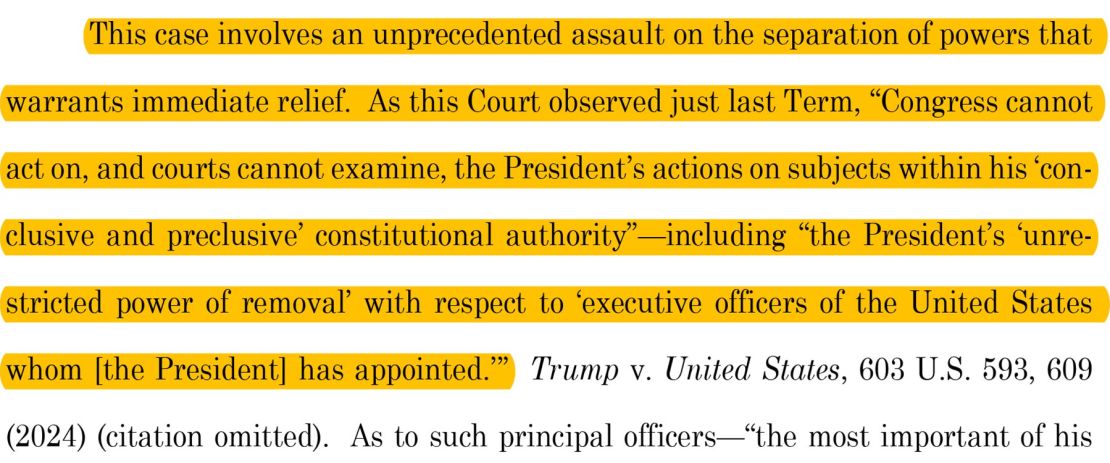
“And they are now completely misquoting and misunderstanding Trump v. US,” Gerhardt added. “It’s ultimately about a president’s liability under the law.”
The 6-3 decision on immunity arose from Trump’s efforts to avoid criminal prosecution for election subversion traced to his 2020 loss to Joe Biden. Special counsel Jack Smith had charged the former president with four criminal counts, including that he falsely claimed widespread voter fraud, tried to organize fake slates of electors, and encouraged his supporters to march toward the US Capitol on January 6, 2021. Five police officers were among the nine people who died in the day’s riots and in the months that followed.
In siding with Trump and effectively shutting down Smith’s case before the November election, Roberts declared a presumptive immunity from prosecution for official acts. He reinforced the majority’s view by highlighting the broader dimensions of presidential authority, for example, over foreign affairs and appointments, which Trump’s lawyers have employed in new cases.
Trump’s personal lawyer will now represent his Justice Department
Lawyer D. John Sauer represented Trump in the case that led to the Supreme Court’s sweeping July 1 decision giving him personal immunity from prosecution.
Sauer remained Trump’s lawyer, and before Trump took office last month, Sauer touted his personal and presidential capabilities in the TikTok case. Sauer urged the justices to postpone action on the controversy over the popular social media platform headquartered in Beijing until Trump was again in the White House.
“President Trump alone possesses the consummate dealmaking expertise, the electoral mandate, and the political will to negotiate a resolution to save the platform while addressing the national security concerns expressed by the Government – concerns which President Trump himself has acknowledged,” Sauer wrote in a filing to the Supreme Court that repeatedly referred to Trump v. US.
Sauer will remain in the fold. Trump has nominated him to be solicitor general – the government’s top lawyer at the Supreme Court.
Trump’s private team separately in January pointed to Trump v. US as it claimed a Manhattan trial judge wrongly determined Trump should be sentenced for his earlier May 2024 conviction in the New York hush money case. Trump’s lawyers said the Supreme Court’s decision should have shielded him from any proceeding during the period of presidential transition, between the election and his inauguration.
As Sauer awaits a Senate hearing, acting solicitor general Sarah Harris has shepherded the Dellinger controversy.
Biden appointed Dellinger and he was confirmed by the Senate in March 2024 to a five-year term. After Trump fired him this month, Dellinger sued, arguing that the law governing his appointment says he may be dismissed only for “inefficiency, neglect of duty, or malfeasance in office.”
Lower courts have sided with Dellinger in preliminary hearings. But the conservative high court has in recent years given the president greater authority to remove individual heads of independent agencies.
Harris has cited those decisions in her request to the justices that would allow Dellinger’s removal – but only after using Trump v. US to underscore the urgency of the president’s position.
Preventing the president from removing an appointee who is not his choice, Harris wrote, “inflicts the gravest of injuries on the Executive Branch and the separation of powers.”
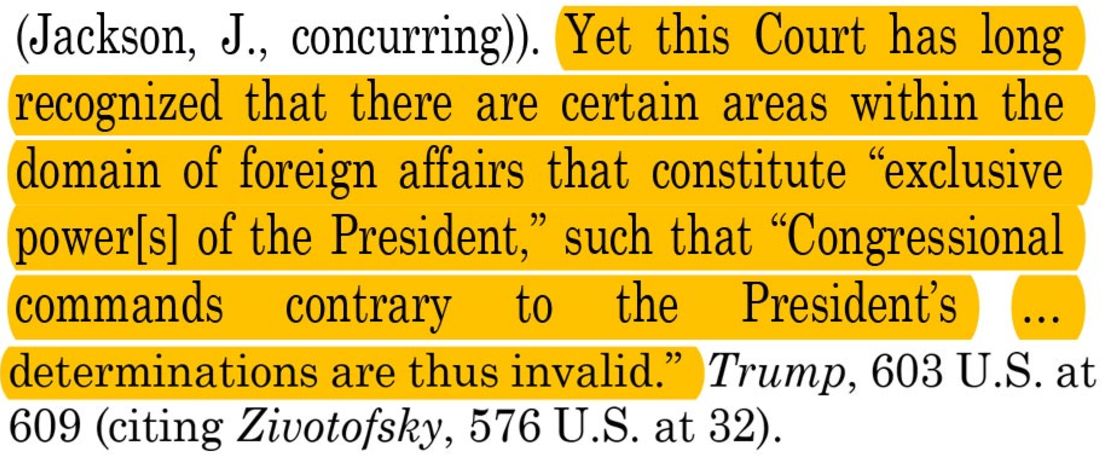
Her overall message: While the dispute involves a small government agency, the stakes are massive for Trump’s early agenda.
More relevant to the dispute at hand, Harris noted that twice in the past five years the justices struck down limits on the president’s ability to remove officials serving as the sole head of an executive agency.
In those 2020 and 2021 cases, involving directors of the Consumer Financial Protection Bureau and the Federal Housing Finance Agency, the justices said protections for those officials violated the president’s constitutional authority.
Dellinger’s lawyers on Tuesday urged the justices to allow him to stay at his post while letting lower court judges continue their review of the merits of the case. Referring to a federal judge’s temporary restraining order permitting Dellinger to keep his job as the case proceeds over the next week, his lawyers wrote, “There is no merit to the government’s effort to declare a five-alarm fire based on a short-lived TRO.”
Justices have unmoved thus far
In the TikTok case, the justices were unmoved by Trump’s plea for any delay and let the ban be enforced on January 19. The next day, after officially returning to the White House, Trump instituted a 75-day pause on the ban against the popular social media platform with a Chinese parent company.
The justices also in January allowed his Manhattan sentencing to go forward. The 5-4 majority noted that the trial judge had said he would be imposing no penalties or prison time.
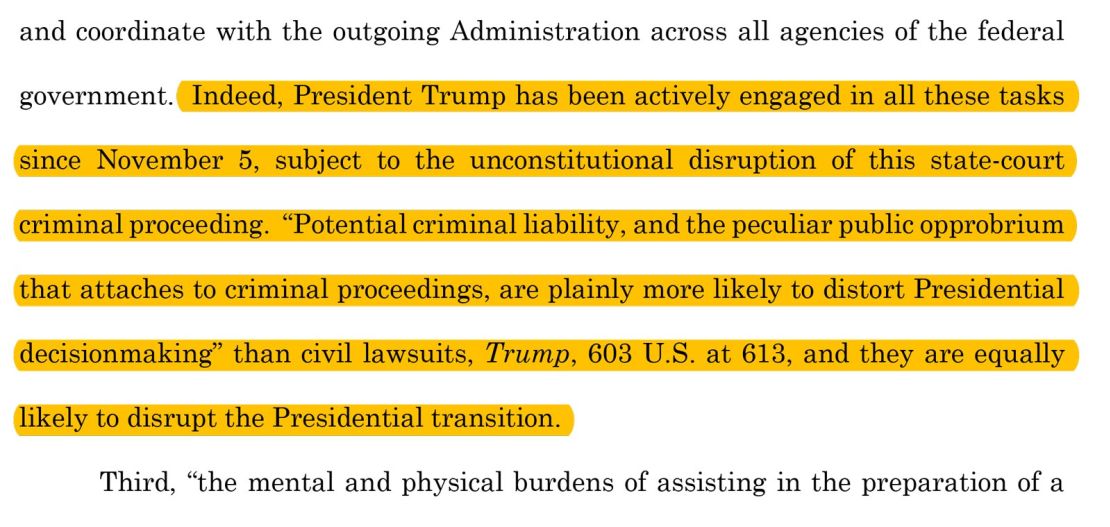
As much as the administration’s new submission in the Dellinger case accentuates the stakes of a president’s constitutional authority, Harris closed by stating that her position is quite limited.
“(I)n the weeks since the President’s current term began,” she wrote, “district courts have issued multiple TROs that block the President’s policies throughout the Nation, sometimes even throughout the world. Although the government firmly believes that those TROs exceed district courts’ lawful authorities, it has thus far sought the Court’s intervention only in this case – because this TRO intrudes so deeply into the President’s Article II powers.”





